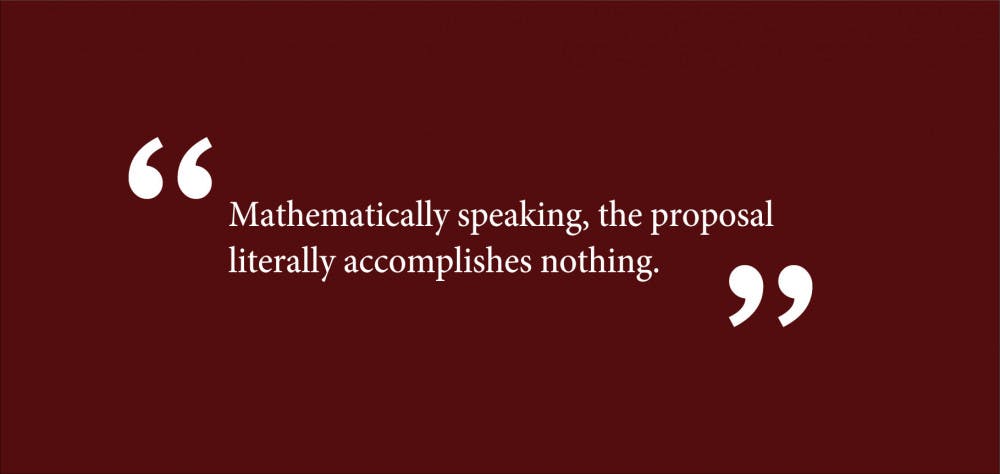Well, MLB Commissioner Rob Manfred is at it again. Here’s Ken Rosenthal, reporting Tuesday in The Athletic:
“As part of a Jan. 14 proposal to the players’ union on pace of play, baseball suggested a rule requiring pitchers to face a minimum of three batters, sources told The Athletic. … If no agreement is reached, the collective bargaining agreement empowers Manfred to unilaterally implement three elements he formally proposed last year, according to sources — a 20-second pitch clock, a reduction of mound visits from six to five and a rule placing a base runner on second base in spring training games and the All-Star Game when the score is tied after the 10th inning.”
For some strange reason, Manfred keeps returning to this idea: That placing runners on second base every inning after the 10th will somehow improve baseball. It’s difficult to express fully how illogical this is, but I’ll give it a shot:
1: The proposal only comes into effect in the 11th inning. Anyone who has stayed through the first ten can’t possibly care that much about the game moving slowly. If anything, you’d think that to make the game more exciting for casual fans, rule changes would target the early innings, when most spectators are still in the stadium. As a hardcore baseball fan myself, I am likely to stay for extras, and also likely to dislike this proposal. It’s a little bit like a movie theater holding an Oscar-winning movie marathon, but adding a mandatory screening of Adam Sandler’s “Jack and Jill” afterwards.
2: Mathematically speaking, the proposal literally accomplishes nothing. Each team gains the same advantage, so the advantages cancel each other out. It achieves the same thing as adding twelve runs to each team’s score every inning, and it adds as much excitement to the game: none. More runs will score, but they’ll mean a lot less.
3: The proposal will turn innings after the tenth into soporific repetitions of a formula: sacrifice bunt, intentional walk, intentional walk, try for a sacrifice fly. Each extra inning will become an exercise in game theory. The visitors will play it safe and aim to score just one run: They won’t want to go for a big inning and come away with nothing, effectively handing the game to the home team. Once the away team scores one run, the home team will likewise play it safe, knowing that it only has to score one run to tie, and that if it goes all-out for a big inning, it might not score at all. One boring run every inning, one after another. What’s the point of this rule again?
4: On a related note: Extra innings are exciting! They’re suspenseful! How could it possibly be a good idea to impose a rule that would make them less so? Imagine if during college football overtime, where teams take turns on offense, each drive started inside the red zone. Again: Both teams will score more, but the runs won’t matter as much.
5: People hate it! A March 2018 Marist University poll asked self-identified baseball fans what they thought of the proposal. 67 percent responded that it was a “bad idea,” and every demographic agreed. In the northeast, 64 percent thought it was a bad idea, and in the South, 65 percent said the same. 65 percent of fans aged 18-29 opposed the rule, as did 67 percent of fans aged 60 and older. Howard Schultz could take a page from Rob Manfred’s book: It’s exceedingly rare to see Americans from such varied walks of life so overwhelmingly united.
I genuinely cannot fathom why Manfred has pushed this proposal so strongly. He has advocated for it for several years now, and it seems like an enormous waste of whatever political capital he may have. Even if Manfred views speeding up extra innings as an accomplishment, the dislike for his proposal is overwhelming. Rob Manfred is enthusiastically supporting a proposal that the vast majority of baseball fans oppose. Why?
The only answer I can think of is that Rob Manfred really believes in what he is proposing. It is his sincere, genuine conviction that extra innings lasting too long is an urgent problem, and that he should take drastic action to fix it. Fortunately, an overwhelming majority of American baseball fans disagree with him. Unfortunately, he seems to believe in his inane proposal so staunchly that he may be willing to push it ahead anyway.
James Schapiro ’19 can be reached at james_schapiro@brown.edu. Please send responses to this opinion to letters@browndailyherald.com and op-eds to opinions@browndailyherald.com.





